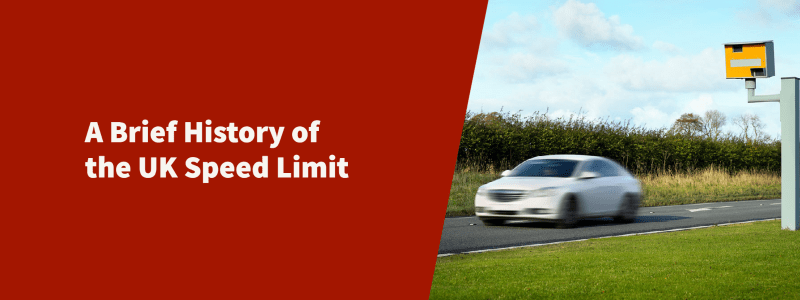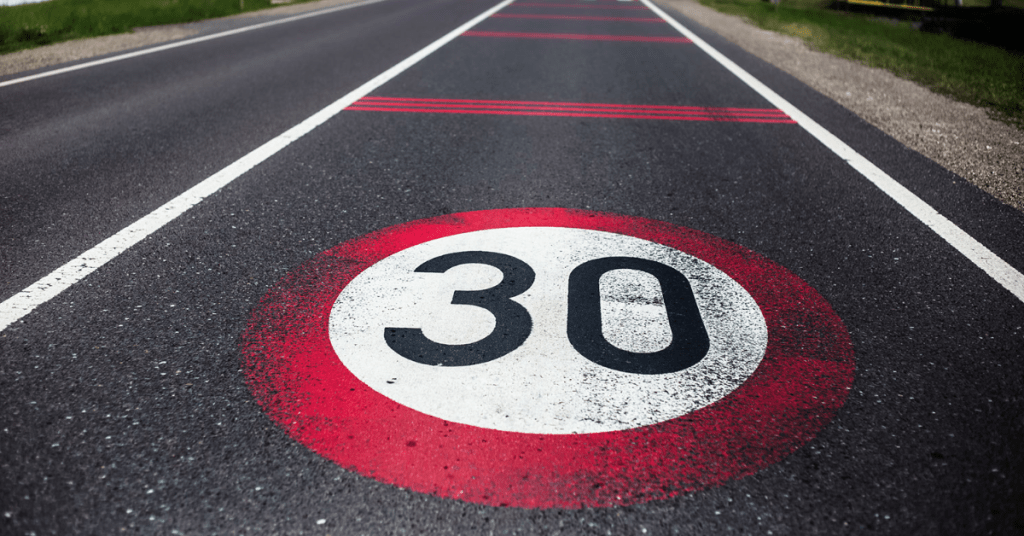The First UK Speed Limits
The U.K speed limit has a varied and interesting history. It all started over 100 years ago, with the invention of cars and their increasing popularity.
In 1895, vehicle requirements meant that a flag bearer had to stand in front of the vehicle to alert passers-by. At this time, speed limits were 2mph (!). However, these rules didn’t sit well with motorists, and led to the first speeding ticket in 1896 after a man from Kent sped 4 times past the national limit of 2mph. The laws changed in 1903 when the maximum limit raised to 20mph.
The limit was changed a number of times in the following years. In 1930, the speed limit was removed completely for all vehicles excluding coach services, some HGVs and bus services (which were restricted to 20mph). Additional speed limits for cars in built up areas came into effect in 1934, when a rise in motor vehicle deaths prompted action. This limit of 30mph is what forms the basis of our current speed limit rules. But motorways were different.
What Has Changed?
On Thursday morning June 1964, British rally driver Jack Sears reached 185 mph on the M1 motorway. Tabloids at the time had a field day, citing this as dangerous driving. From 22nd December 1965, the UK government trialed a 70mph limit on all motorways. In 1967 this became an official law. But was Jack to blame? The short answer is no.
It was 3 years between Jack’s 185mph drive and the law changing, and it’s been proven by the lawmakers of the time (to Jack, no less!) that the record speed had no impact on creating a new law.
Why Do We Have Speed Limits Today?
Unless you’re cruising down Germany’s autobahn, chances are a speed limit is in place. The reason for speed limits, much like speed cameras is the safety of all road users. It’s obvious but with a controlled speed means a reduction in accidents. The UK speed limit on motorways is 70mph, or 60mph if it’s an HGV or a car pulling a trailer.
However, a YouGov survey found that 78% of men and women admitted to speeding. The results suggested that British motorists believe the limit should be raised to 80mph on all motorways. With a law going back 50 years and motorways becoming more crowded, is it time for a change?
Opinions are divided. The introduction of “smart motorways” will see speeds vary, but not necessarily increase. The Association of British Drivers argues that faster journeys would produce fewer accidents from tired drivers. Yet, in 2017, the RAC Foundation produced a paper on speed limits, that cited environmental and safety reasons why speed limits may not be raised.
How Can Direct365 Provide For Your Road Safety?
At Direct365 we provide services to numerous transport and logistics businesses all over the United Kingdom. You can trust our stocks to keep safe on the road this winter. We have everything from first aid kits to rock salt, breathalysers and even absorbents and spill kits.


